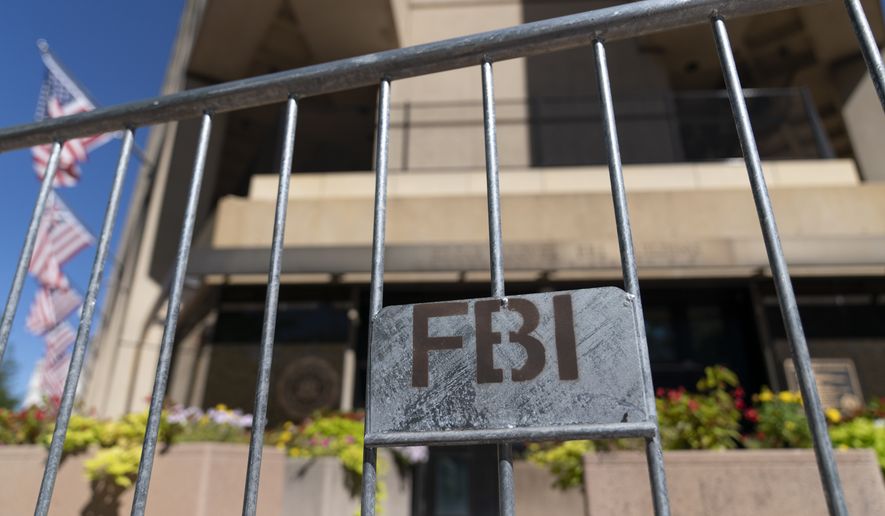FBI lawyers specializing in national security “inappropriately opined” on sensitive cases, urging agents to pursue more severe charges against a suspect and potentially disrupting a critical investigation because of a search warrant dispute, the Justice Department’s internal watchdog said in a critical new report Thursday.
According to the report released by the Justice Department Inspector General’s Office, “aggressive” attorneys within the FBI’s National Security and Cyber Law Branch, which advises agents on high-level investigations, overstepped their bounds by offering their opinions on topics traditionally reserved for federal prosecutors.
The IG report said the FBI’s Office of General Counsel and agents complained that the lawyers “inappropriately opined on matters related to the sufficiency of evidence, certain charging decisions and discovery obligations.” Those attorneys were likely trying to influence prosecutorial decision-making, the report said.
Despite the lawyers’ overzealousness, the inspector general did not find evidence that political or other bias was the motivation for their actions. Instead, the report attributed their influence to confusion over FBI policies and lack of communication.
Still, Justice Department Inspector General Michael E. Horowitz said he uncovered examples in which lawyers’ attempt to influence a case “potentially disrupted” sensitive national security cases.
In one example, an FBI lawyer urged an agent to charge a target with espionage, while Justice Department prosecutors said the evidence only supported lesser charges, such as the unauthorized disclosure of national security information or retention of classified materials. The cybersecurity lawyer’s recommendations “set unrealistic expectations” for the case, according to the report.
SEE ALSO: FBI insiders say agents who took a knee during BLM protests were rewarded
A lawyer also determined there was sufficient evidence to establish probable cause, but officials within the Justice Department’s National Security Division disagreed. The difference assessments delayed a sensitive case, potentially disrupting the investigation.
Mr. Horowitz said those two cases suggest that improvements should be made in the “collaboration, coordination and communication” efforts between Justice Department security officials and FBI attorneys.
Some of the disputes between the FBI’s national security lawyers and the Justice Department’s National Security Division spilled over into efforts to obtain a warrant from the Foreign Intelligence Surveillance Court.
Earlier reports from the inspector general found that the FBI had “widespread” errors in handling surveillance warrants applications, including ones to monitor 2016 Trump campaign aide Carter Page and his possible ties to Russian officials.
FBI lawyers insisted the Justice Department officials should have done more to assist with the identification of facts and supporting documentation to justify a Foreign Intelligence Surveillance Application (FISA) warrant. However, the Justice Department officials countered that they did not have direct access to FBI systems and the bureau should be responsible for overseeing its own agents’ work.
Although Mr. Horowitz did not offer evidence that the internal spats influenced a FISA warrant application, he did conclude that better coordination would reduce errors.
He wrote there was “a general consensus” among the FBI lawyers that the Justice Department’s National Security Division should participate in “a front-end accuracy review in order to reduce the number of compliance incidents.”
An FBI spokesperson did not immediately return a request for comment, but a letter from top bureau officials accompanying the report said it concurred with the inspector general’s findings.
The letter also said that FBI officials will work to “timely implement our actions in response to your recommendations.”
• Jeff Mordock can be reached at jmordock@washingtontimes.com.




Please read our comment policy before commenting.